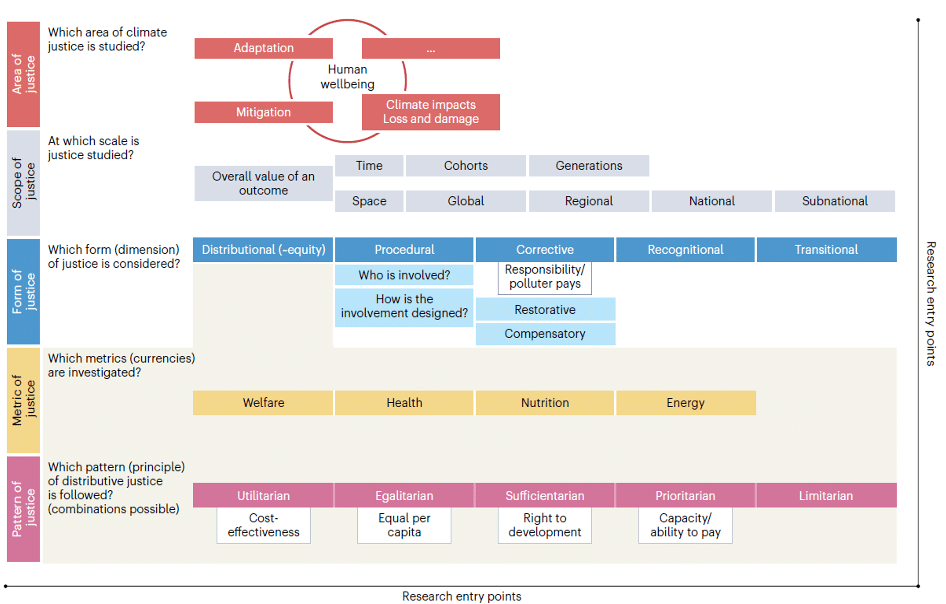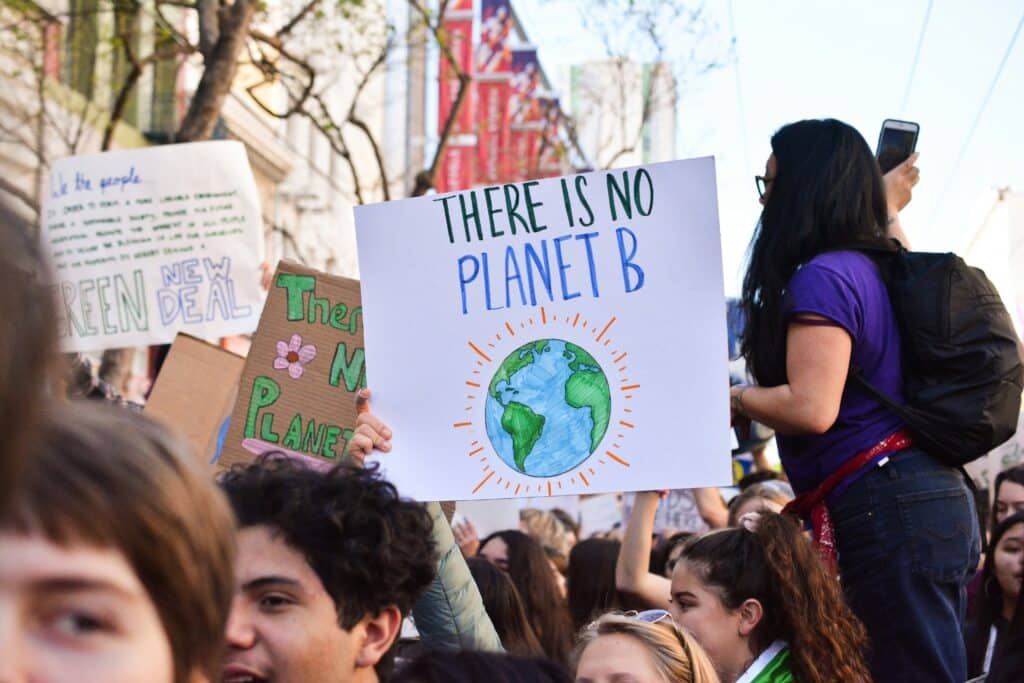Climate justice: multiple ways to look at it
Highlights from the event “Advancing Climate Justice: integrating fairness into policy and practice”
On October 23’s online event, Kian Mintz-Woo from University College Cork presented a justice framework focused on climate change and decarbonisation as part of the FSR Insights series titled “Securing Europe’s Energy Future.” His co-authored paper “Justice considerations in climate research” introduces a conceptual framework integrating justice into climate research, highlighting the importance of systematically addressing fairness in mitigation scenarios. The work identifies five key forms of justice – distributional, procedural, corrective, recognitional, and transitional – that can guide future research and policymaking toward developing equitable and effective climate solutions.
The presentation by Mintz-Woo highlighted a comprehensive justice framework for climate research, stressing its accessibility and modularity across disciplines.

It breaks down justice into three components: area (e.g., mitigation, adaptation), scope (temporal and spatial inclusivity), and forms (distributional, procedural, recognitional, corrective, and transitional). Each addresses unique aspects of justice and their implications for dealing with climate challenges. For example, distributional justice concerns how resources and responsibilities are allocated among nations and individuals, while procedural justice highlights the importance of inclusivity and transparency in decision-making processes. Recognitional justice focuses on acknowledging and respecting affected populations’ diverse histories, cultures, and identities, whereas corrective justice seeks to address historical wrongs such as the disproportionate contributions of some nations to greenhouse gas emissions, and transitional justice examines how societies can navigate the path toward equitable solutions over time.
These dimensions collectively form a holistic approach to integrating justice into climate research, leading to better-informed and more equitable policy outcomes that address the complex risks of climate change.
After the presentation, the discussion, featuring insights from Philippe Delacote (INRAE), Amaia Palencia Esteban (LSE), and Jacopo Cammeo (FSR), focused on the importance of integrating justice into climate scenario research to guide policymaking for more equitable outcomes. Moderated by Marzia Sesini and Nicolò Rossetto (FSR), the session encouraged an engaging conversation about balancing equity and effectiveness in climate policies.
The interventions emphasised the need for a broader and more inclusive approach to climate justice. A key issue raised was the ambiguity of terms like "justice" and "equity," which complicates their application in aligning scientific research with policy implementation.
To tackle this, the panellists stressed the importance of expanding justice beyond human-focused concerns to include non-human entities such as animals and ecosystems. This biocentric perspective challenges traditional anthropocentric norms, urging a recognition of the interconnectedness between human and ecological well-being in shaping climate policy. Other relevant aspects discussed concerned some of the five forms of justice. Corrective justice is recognised as an important yet sometimes contentious aspect of climate justice. While its relevance to tackling historical inequities is acknowledged, concerns about practical implementation challenges and the potential political tensions it may create were also noted. The value of procedural justice in fostering inclusivity and fairness in decision-making was underlined. Engaging diverse voices, especially those often excluded from the climate debate, and ensuring their realities inform policy were deemed critical to achieving fairer outcomes. Finally, the discussants pointed to significant gaps in existing frameworks, particularly the lack of importance on gender equality and health indicators.
During the event, the audience raises critical questions about the Paris Agreement, namely, the inclusion of equity in Nationally Determined Contributions (NDCs). Considering countries’ diverse economic and social contexts, they questioned whether the targets are ambitious, socially, or politically feasible. Another question from the audience concerned the role of researchers in engaging with policymakers. The presenter stressed the need for researchers to understand the political landscape better and present their findings in ways that are relevant and accessible to policymakers. This collaboration between science and policy is essential to ensure that climate goals are scientifically sound and politically achievable.
In conclusion, it is proposed that the future direction of climate research should emphasise climate adaptation. This shift in focus would involve studying effective adaptation measures, identifying vulnerable regions, and exploring innovative and just solutions to mitigate the risks associated with climate change.






